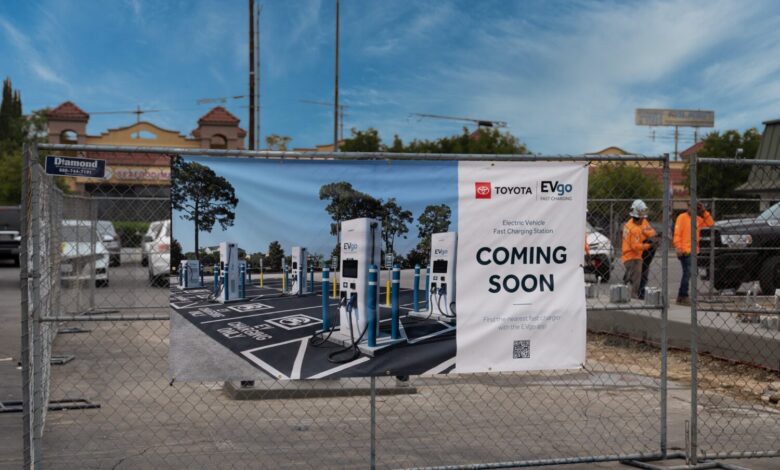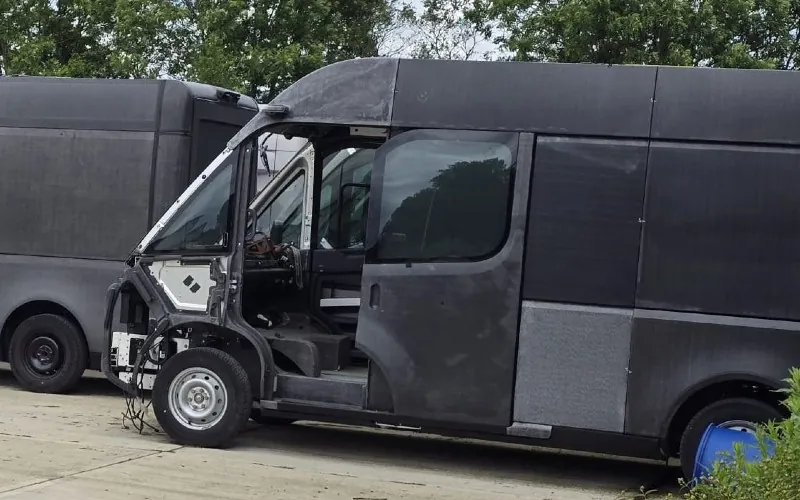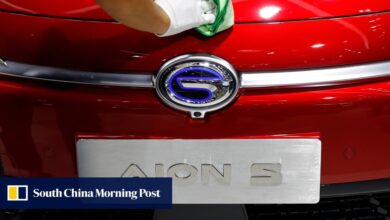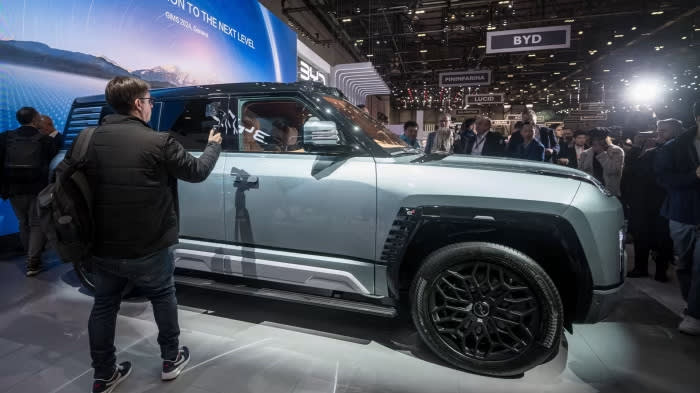Toyota, Ohio aim for equitable EV charging infrastructure

Efforts by Toyota Motor North America (TMNA) in California and legislation introduced in Ohio have some hopeful of progress toward equitable electric vehicle (EV) charging infrastructure availability.
The results of a J.D. Power study, released in June 2023, found that 49% of people shopping for a new vehicle rejected EVs as an option due to a lack of charging infrastructure — still one of consumers’ top concerns about EVs in addition to range anxiety and purchase, repair, and maintenance costs.
While EV sales are increasing, public EV charging infrastructure is still lacking, with the installation of public chargers not keeping up with current and projected sales, according to an Alliance for Automotive Innovation (Auto Innovators) report released in January.
During the first three quarters of 2023, the number of public EV chargers increased by 26% year-over-year while EV sales increased by 59%, according to the report.
Nationwide, 378,097 EVs were registered in Q3 2023 but only 7,800 new public chargers were added, meaning there are 48 EVs for every new public port, Auto Innovators wrote.
On Wednesday, TMNA revealed the first two communities that will receive DC fast chargers under the company’s “Empact Vision” will be in California. The vision aims to address equitable EV charging and mobility, according to TMNA.
The chargers will be operational next year in Baldwin Park and Sacramento. The high-power 350kW chargers at each location will be installed, owned, and operated by EVgo.
“Providing ‘Mobility for All’ is our North Star as we look to support and facilitate equitable EV charging opportunities for all customers,” said Christopher Yang, TMNA Business Development group vice president, in a news release. “We want to help ensure these underserved communities are not overlooked in the EV transition, and providing support for these charging facilities helps provide access to those who may not have easy access to home or public charging options.”
Toyota’s Clean Assist program, launched in 2021, matches residential customer charging with renewable electricity, thereby helping to reduce emissions generated from charging. In California this generates revenue from the Low Carbon Fuel Standard (LCFS), based on battery electric vehicles (BEV) and plug-in hybrid electric vehicles (PHEV) charging at home. That revenue has been re-invested into transportation electrification in the state, including these chargers.
Toyota has reinvested money earned from its Clean Assist residential renewable charging program and California’s Low Carbon Fuel Standard into the state’s transportation electrification, including the fast chargers.
“Expanding access to public charging infrastructure is critical to our mission of accelerating the mass adoption of EVs,” said Dennis Kish, EVgo president, in the release. “We are proud to partner with Toyota to build new fast-charging resources that will support the equitable distribution of charging infrastructure in the Golden State.”
The cities receiving DC fast chargers were chosen using the CalEnviroScreen tool and based on certain criteria such as resident income levels, demographics, air quality levels, and areas that have or are expected to have meaningful EV penetration. The CalEnviroScreen tool can be used to identify communities most affected by sources of pollution, and where people are often especially vulnerable to the effects of pollution, according to the California Office of Environmental Health Hazard Assessment.
In Sacramento, the new chargers will be installed near the Arden Fair Mall, a known high-traffic area close to the freeway with multiple options for dining, shopping, and other activities, the release states.
“As a member of the California Air Resources Board and the Sacramento Air Quality Management District, I am extremely excited that Toyota and EVgo have selected Arden Fair Mall as the site for a new eight-stall electric vehicle charging station,” said Sacramento Councilmember Eric Guerra, in the release. “We’ll continue to look for ways to reduce carbon emissions and I’m proud of the work our region is doing to meet our air quality goals.”
The Baldwin Park charging station will also be centrally located, less than a mile off Interstate 10, with access to amenities including an on-site grocery store and several nearby restaurants, Toyota said.
“Investing in public charging not only supports EV drivers, it also benefits everyone in our community by encouraging zero-emissions travel in an area that has experienced historically poor air quality,” said Sen. Susan Rubio (D-District 22), in the release. “This new fast charging station in Baldwin Park will bring economic and public health benefits that our residents and visitors alike can enjoy.”
Toyota plans to continue supporting local communities through its Empact Vision by helping enable the transition to electrification for all, according to the release.
In Ohio, the Charge Ahead Partnership (CAP), a coalition of businesses and organizations working to expand the nation’s EV charging marketplace, has shared its support of a bill that would prohibit electric utilities from raising rates on all power customers.
SB 266, sponsored by Sen. Bill Reineke (R-District 26), would establish a five-year prohibition on electric utilities owning and operating ratepayer-funded charging stations. After the five years are up, utilities can petition the Ohio Public Utility Commission to enter the charging business, according to the bill. However, they’ll be limited to areas where the EV charging market hasn’t developed and private businesses will have the right of first refusal on any location.
“Ohio should be encouraging private investors, entrepreneurs, and innovators the chance to get into the business of charging EVs,” Reineke said, in a CAP news release. “Ohio residents should benefit from competition and supply reliability for a charging network, especially when private businesses can offer a capable and economical business case. Our nation’s most successful marketplaces have been forged through private investment and fierce competition, and the emerging EV charging market should be no different.”
As more and more Ohio drivers are traveling the state in EVs, the need for a competitive free market for EV charging has never been stronger, CAP said in the release. “Reineke’s legislation addresses key issues that have been holding back the growth of Ohio’s EV charging network.
“Power companies using ratepayer funds in other states have undercut competition and discouraged private investment in EV charging while forcing power customers to pay higher bills.”
CAP says the bill also protects Ohio’s power consumers from having to pay higher electricity bills for chargers that many ratepayers will never use.
“Sen. Reineke’s bill is a much-needed step for Ohio to develop the EV charging network that EV drivers — both current EV owners and the drivers of the future — will need,” said Jay Smith, CAP executive director, in the release. “Ohio has retailers and investors throughout the state who are eager to get into the EV charging business — as long as they know they can compete on a level playing field. Thank you, Sen. Reineke, for your leadership.”
The debate between public and private charging has been ongoing in other states as well, including Virginia, Pennsylvania, and Louisiana.
A bill that would’ve created a rural EV infrastructure in Virginia died in March.
In Pennsylvania, utility companies are discouraging private investment in EV charging, according to testimony form CAP during a March House Consumer Protection, Technology and Utilities Committee hearing.
In February, staff for the Louisiana Public Service Commission issued a recommendation to not allow Louisiana’s utility companies to use ratepayer funds to build, own, and operate charging stations.
Images
Featured image: A future Toyota/EVgo electric vehicle DC fast charging site under construction. (Provided by TMNA)
Share This:



